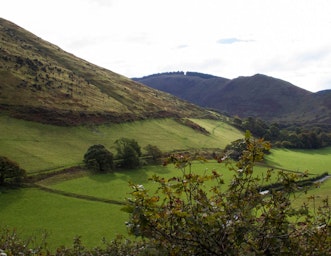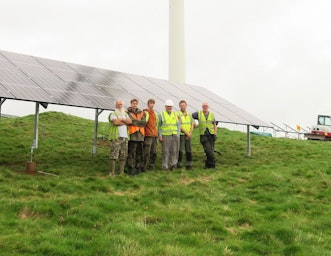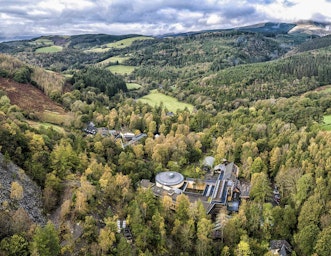
As we begin to think about what a post-COVID-19 world might look like, CAT CEO Peter Tyldesley argues for a green stimulus package to help tackle the climate and biodiversity crises whilst improving people’s health and wellbeing.
As the UK enters its seventh week of coronavirus restrictions, and the national conversation begins to turn to when we might expect to see some semblance of normal life safely restored, this seems an appropriate time to reflect on the lessons and experiences that we can take with us into the future.
One thing that is abundantly clear is that what has been referred to as the ‘global pause’ is just that: whilst lives and livelihoods across the world have been devastated by COVID-19, our society has not fundamentally changed. The world remains on track towards a disastrous level of global heating, and the sixth mass extinction that has seen species and their habitats around the world vanish at an unprecedented rate continues unabated.
What this hiatus has done is give us a moment of enforced reflection to consider what is really important and how certain some of the old certainties are after all.
Kick-starting the green recovery
Recent opinion polls in the UK show that the public wants to see the Government tackle climate change with the same urgency as has been seen in its response to coronavirus. This means that any recovery needs to be kick-started by some form of green stimulus package rather than bailing out oil companies and airlines. A nationwide programme of retrofitting the millions of homes that currently lack decent insulation, thus reducing carbon emissions and tackling fuel poverty, would be a good start.
The switch of large amounts of manufacturing capacity over to making PPE and ventilators for the NHS demonstrates how a comparable re-tooling and re-skilling could switch capacity in ‘dirty’ industries to the products that will be needed to set the country on the route to zero carbon. Stimulus packages that enable the manufacture of wind turbines, heat pumps and insulation, for example, offer a multi-solving solution, helping tackle the climate emergency whilst creating an estimated 1 million green jobs in the UK.
Similarly, changes to infrastructure to allow increased social distancing whilst travelling can be planned hand-in-hand with the long-term changes needed to reduce emissions from transport. We are beginning to see plans for making more space for walking and cycling, and even the President of the AA has argued for funding to be redirected from roads to broadband, saying: “People travelling up and down motorways just to hold meetings is inefficient, expensive and not good for the environment.” The myriad benefits of these changes could go well beyond reducing the spread of coronavirus, bringing with them reduced emissions, improved air quality and the enhanced health and wellbeing that comes with increased exercise.

The fragility of our food system has also been highlighted as never before, with the threat of devastating global famine and disruptions to UK agriculture leading many people to examine – perhaps for the first time – where their food comes from and whether there are better, more resilient ways of feeding ourselves. As we begin to examine the lessons learned, we can look at what changes are needed to create a food system that improves global health, protects and restores biodiversity, and helps us achieve net zero greenhouse gas emissions.
The future we choose
The pandemic and the resulting global pause has brought us to a point where we can reassess what we want the future to look like. We can either opt for a return to business as usual or we can choose a path towards a different future: a future in which the working day does not need to be preceded and followed by an hour or more stuck in traffic or crammed into a standing-room-only commuter train; a future in which our worth is determined by who we are rather than by what we own; a future in which we value community and human contact all the more for having been forcibly deprived of them; and a future in which we have risen to the climate challenge.
There is no getting away from the awfulness of the COVID-19 pandemic and its impact on people’s lives and livelihoods as well as the appalling number of lives lost. The challenge we now face as a society is how to construct a future that is a fitting memorial to those we have lost, so that 2020 is looked back on as a key turning point in the history of humanity.
Did you know that CAT is an educational charity?
Please consider supporting our work by becoming a member.
- Climate Change
- News Feed
Related Topics
Related Pages
Related news


CAT Conversations: Sandy Stevens, CAT graduate
17th April 2025
More solar energy for CAT
4th April 2025
CAT Student Bursaries Announced for 2025
30th January 2025Enews sign up
Stay up-to-date with the latest news, events and activities from CAT by signing up to our Enews and following us on social media.
